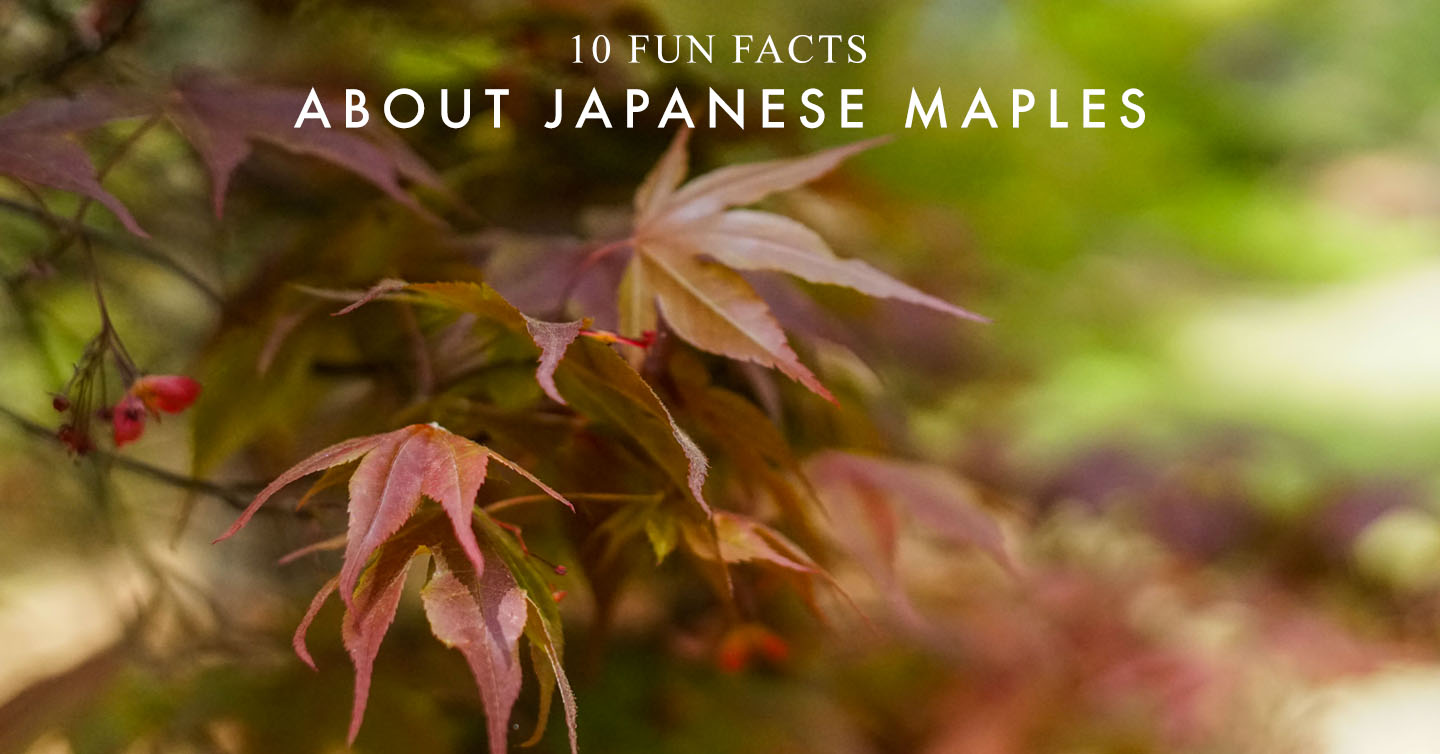Your yard should be a spot that you get the rest and relaxation you need. Whether it holds a seat for your morning coffee, or an evening of cornhole around the grill—let Crooked Oaks help you add some very special touches to a yard that we hope hosts all kinds of fun! To everyone who thinks they were not blessed with a green thumb, to those looking to try their hand at some brand new landscaping, or even if you just want to add a little something new to the existing scenery, we are here to match you with the perfect tree! The beauty and versatility of Japanese Maples makes them an excellent choice. Read on about these fun facts to know about Japanese Maples.
Their Fruit Is Named “Samara”
As the seasons change, some plants flower and grow fruits or seeds—like the Japanese maples. They grow little seeds called “samara” and commonly known as “helicopter seeds.” They’re not like apples or oranges though—they’re closer in nature to acorns.
They Can Thrive in the Shade
Japanese maple trees don’t need too much sunlight. Some can handle full sun with every stride, but many can even thrive when planted completely in the shade!
They Get Sunburns Too
It turns out that people aren’t the only ones who can get sunburns. Japanese maple leaves are delicate, and sometimes will burn if watered at a time too hot during the day. Tiny droplets of water will magnify sunlight on the leaves and cause a dappling type of burn, or the tree gets very thirsty and takes up too much water into the leaves, which causes edge burn! Don’t worry though—we can advise you on the right place to plant them and how to water with your type of soil!
Baby – We’ve got a Bonsai!
Bonsai trees require careful attention, but their dwarfed beauty that you can admire on your porch with a glass of tea is well worth the work. Did you know that bonsai trees can be grown from Japanese maples, too? They are even relatively easier than other trees because once pot bound, they likely won’t outgrow their pot!
Their Growth Rate is Rapid
You can expect your Japanese maples to grow on average between six inches and one foot each year, and sometimes even more, given proper care. Though some are small, these trees can get big—up 25 feet in width and length.
You Can Find Them in Many Colors
In the fall, we’re used to trees changing their leaves to red, yellow, and orange. Japanese maples can come in those brilliant hues—and they can come in purple too.
Some People Eat Japanese Maple Leaves
Japanese maple leaves can be a tasty treat! Some folks like to cover them in a sugary batter and fry them up to enjoy. Can we pretend that it counts as a salad?
Cultivar Count
Can you guess just how many kinds of Japanese maples there are? Thousands! We’re home to over 200 varieties at Crooked Oaks ourselves.
Grafting
Japanese Maples can produce baby trees! They cross pollinate though, so there is no telling what kind of genetics the seedling could have. It could be five feet or twenty feet tall! In order to create more of these cultivars you must graft them! Grafting is the act of removing a cutting from the mother maple and inserting it into a seedling. Once the surgery is done and the tree heals, they grow up so fast!
You Can Add Them to Your Yard
One of the most fun facts about Japanese maples is that these gorgeous trees are closer than you think. Located just outside of Auburn, AL – a short trip out to the beautiful landscape of Crooked Oaks is the best place to find some beautiful maples! You will leave loaded up and headed home to plant the perfect tree on your own property!
Summary
It’s true—you can bask in the beauty of your very own Japanese Maples for years to come! Now that you’ve reviewed these fun facts about Japanese Maples, visit us at Crooked Oaks to find the perfect fit for your yard! Plus, find out more planting tips and tricks on all things Japanese Maples from the knowledgeable Crooked Oaks crew working in our nursery and gardens—or check out our blog here. You can also call 334-257-1519 or email info@crookedoaks.auburn.edu for more information. Happy planting!

